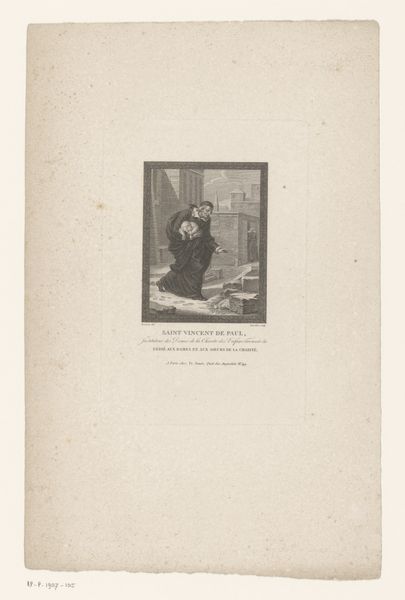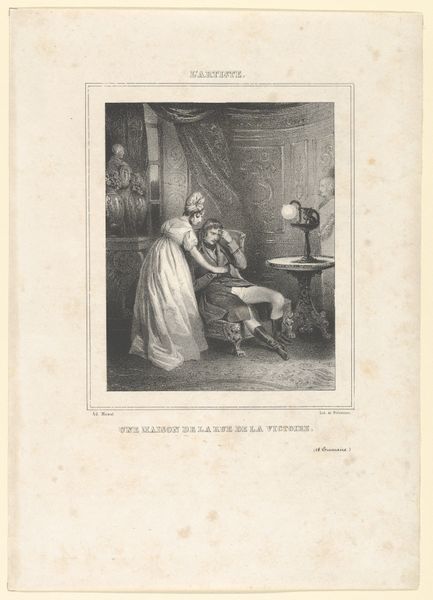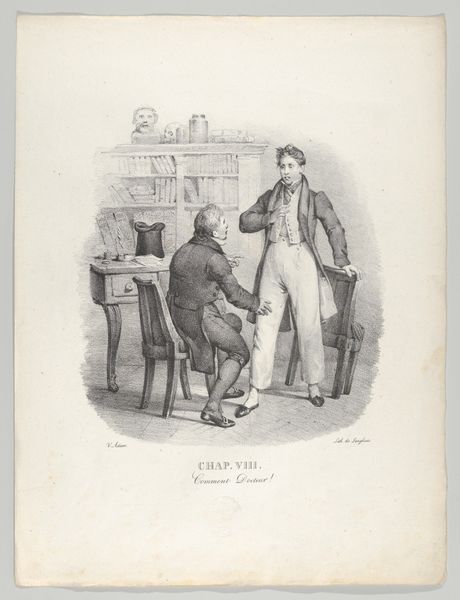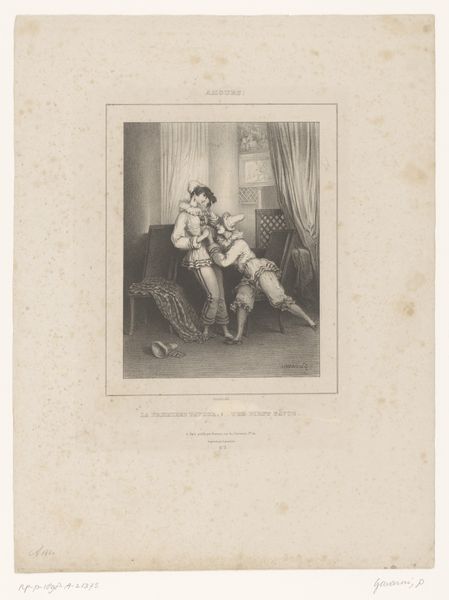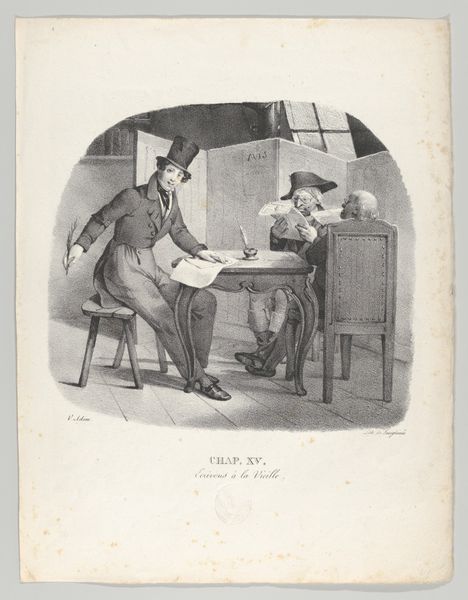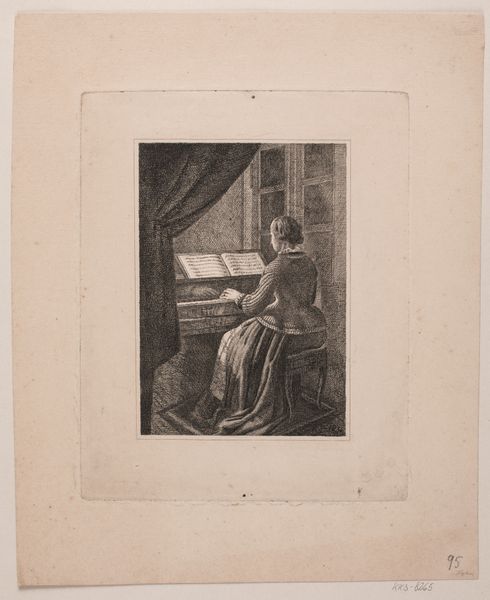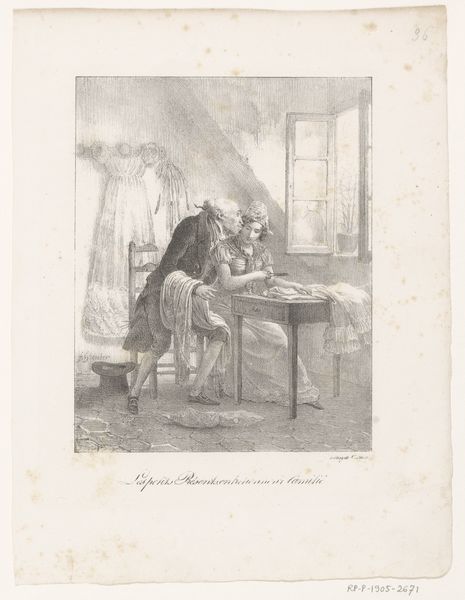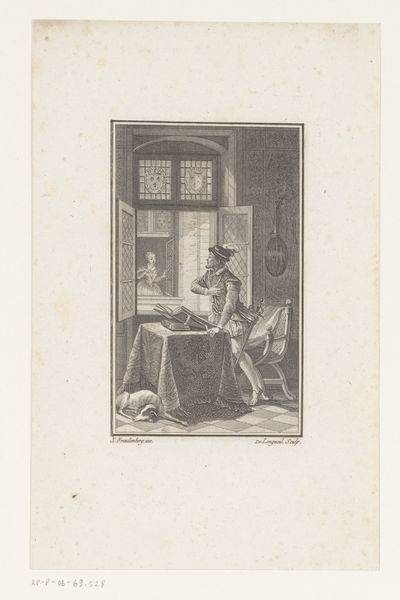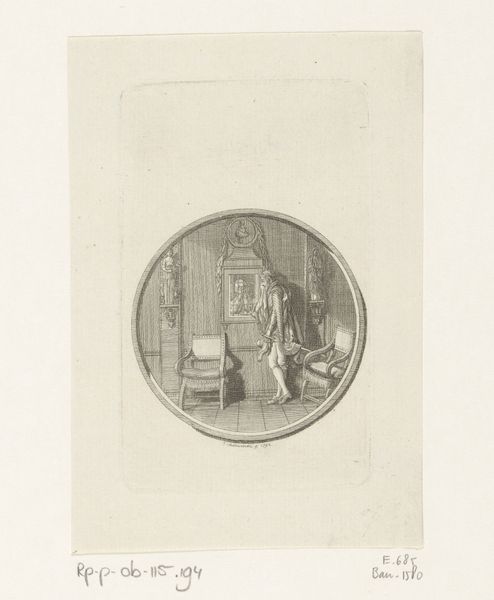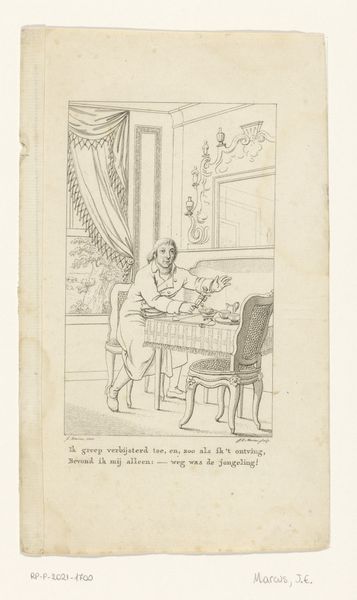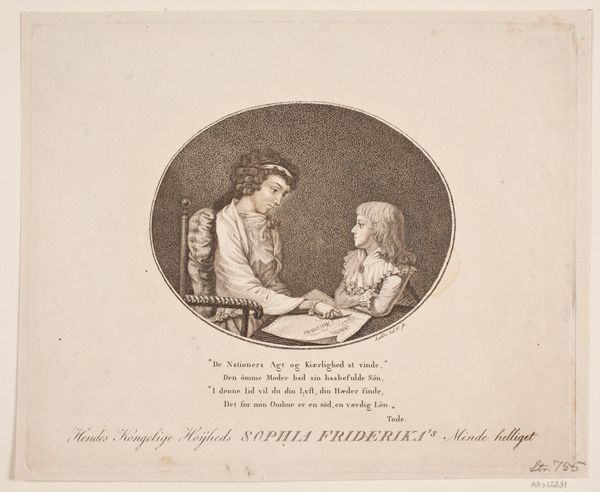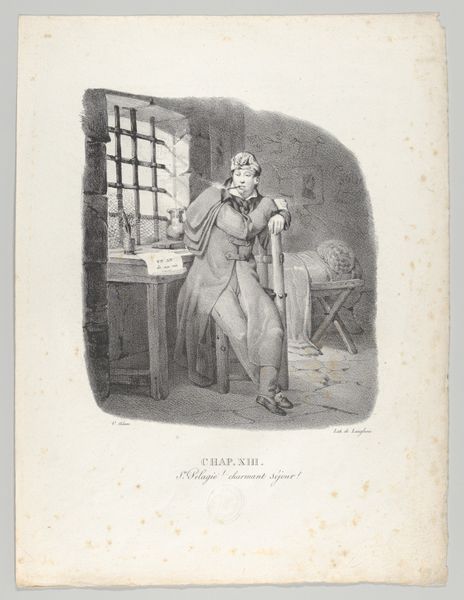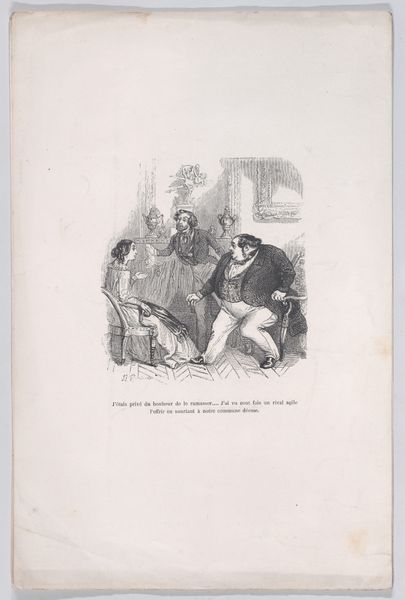
print, engraving
# print
#
old engraving style
#
genre-painting
#
engraving
#
realism
Dimensions: height 192 mm, width 114 mm
Copyright: Rijks Museum: Open Domain
This print, "Telegrafist," was made by Johann Wilhelm Kaiser in the 19th century, using a technique called etching. It's essentially a controlled form of corrosion. The design is first drawn into a waxy ground applied to a metal plate, likely copper or zinc. Then, acid is used to bite into the exposed lines, creating recessed marks. The plate is inked, and the surface wiped clean, leaving ink only in the etched lines. Finally, paper is pressed against the plate, transferring the image. Notice the fine, precise lines and the subtle gradations of tone. These are achieved through the artist’s mastery of the etching process, controlling the depth and density of the lines. Prints like these were products of an increasingly industrialized world, where images could be reproduced and disseminated widely. They blurred the lines between art and information, reflecting a society eager for news and communication. This was a world in which both the telegraphist and the artist were essential.
Comments
No comments
Be the first to comment and join the conversation on the ultimate creative platform.
